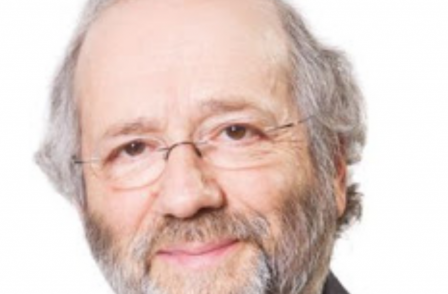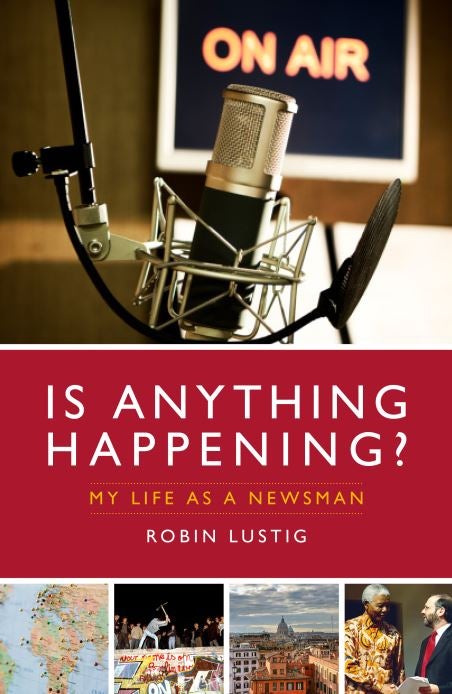
Robin Lustig lef the BBC in 2012 after 23 years presenting The World Tonight on Radio 4. In this extract from his memoir, Is Anything Happening, he casts a critical eye over the BBC’s approach to impartiality.
According to a survey carried out by the European Commission in 2015, only 22 per cent of respondents in the UK said they ‘tend to trust’ what they read in their newspapers, the lowest percentage in any of the EU’s 28
member states.
By comparison, when respondents were asked in a survey commissioned by the BBC which one source of news they most trusted, 57 per cent replied the BBC, followed by ITV (11 per cent), Sky News (9 per cent) and Channel 4 (3 per cent). The highest scoring newspaper was The Guardian on 2 per cent.
So why does the BBC face such constant criticism for the quality
of its news coverage, especially of contentious political issues, if so
many news consumers regard it as trustworthy?
The answer is in the question: it is precisely because so many people trust the BBC that those who believe their own viewpoint is not being fairly represented complain so vociferously. In addition, because of the way the BBC is funded, by means of a compulsory licence fee, everyone feels that they own the BBC and that it should, therefore, reflect their interests and
their views.
My own experience, having worked at the BBC news coalface for more than twenty years, is that its journalists do try as hard as humanly
possible to be fair, accurate and impartial. But that is not the
same as saying that they always get things right, or that they are as
ready as they should be to admit to their errors.
The first major problem faced by the BBC’s journalists is who they
are: just like their counterparts in other media organisations, they
are overwhelmingly university-educated, overwhelmingly London based,
overwhelmingly young, and overwhelmingly middle class.
It is not a problem that is unique to the BBC, but BBC journalists do
tend to share a common background, and often they share a common
outlook.
The key agenda-setters on the Today programme on Radio
4 or Newsnight on BBC2 are producers in their thirties who think
up the story ideas and book the contributors for their programmes.
Jeremy Paxman was unforgivably rude but only half exaggerating
when, shortly after he left the BBC, he described Newsnight as a programme “made by thirteen-year-olds … It’s perfectly normal when
you’re young that you want to change the world.”
When Helen Boaden was head of BBC news, she once asked me to
give a talk to a group of young news producers. “You should listen to
him,” she told them, “because the people you’re making programmes
for are much closer to his age than they are to yours.”
She might have made me sound like a dinosaur on display in a museum, but I understood her point. The average Radio 4 listener is in their mid-fifties; the average BBC1 viewer is nudging sixty.
The BBC has a legal obligation to be impartial in its news coverage.
According to its editorial guidelines, it is obliged to do all we can to ensure controversial subjects are treated with due impartiality in our news and other output dealing with matters of public policy or political or industrial controversy.
The term “due” means that the impartiality must be adequate and appropriate to the output, taking account of the subject and nature of the content. Due impartiality is often more than a simple matter of ‘balance’ between opposing viewpoints. Equally, it does not require absolute neutrality on every issue or detachment from fundamental democratic principles.
You can always tell when the BBC is struggling to be impartial – you
hear an interviewer telling an interviewee: “But some people say…”
It is an unmistakable signal that someone, somewhere is doing their
damnedest to abide by the guidelines.
Interviewee: “It took Phileas Fogg eighty days to travel round the
world, you know…”
BBC interviewer: “But of course, some people say the world is flat…”
Absurd? Clearly, but where should the line be drawn? Whether it is
the discredited theory of a causal connection between autism and the
triple vaccine against measles, mumps and rubella, or the influence
of human activity on climate change, or the claim that the UK sent
£350 million a week to Brussels, at what point does accuracy take over
from impartiality?
These issues are far more difficult to resolve than the BBC’s critics
often claim but, in my view, the BBC does itself no favours by
appearing too often to be uncertain about what it should be doing.
The default posture of most BBC interviewers – and I was as guilty of
this as anyone else – is to challenge whatever their interviewee says.
It stems from a belief that by challenging them and putting the opposing
viewpoint, no matter how outlandish, listeners or viewers are
given an opportunity to decide for themselves how convincing they
find the interviewee’s claims. This default mindset is sometimes called
‘bothsidesism’, because it subscribes to the principle that both sides of
an argument always deserve a hearing.
On the eve of the EU referendum in June 2016, more than a thousand
business leaders signed a letter to The Times backing the UK’s
continued membership of the European Union. The BBC headline
reporting this fact ‘balanced’ it with another fact: that the vacuum
cleaner tycoon Sir James Dyson took the opposite view.
As the leading media analyst Professor Ivor Gaber of Sussex University has pointed out, this was hardly news, given that it had already been reported two weeks earlier. It was an entirely spurious attempt to inject balance
where there was no need.
One way of approaching the impartiality conundrum is to try to
find a way to assess the credibility of the people on each side of a
contentious issue. But who assesses credibility? If three hundred
professors of economics say the country is heading for disaster, and
one hundred professors say the opposite – but they come from more
‘prestigious’ academic institutions – where does that leave the hapless
BBC interviewer?
It places a heavy responsibility on the BBC’s senior specialists: the economics editor, the science editor, or whoever, to whom non-specialists will turn for advice. It also means that in the constant search for fresh voices and fresh viewpoints, journalists need to balance their craving for novelty with their duty to check the credentials of the author of a new theory about, for example, a cure for cancer.
Too often, the BBC has seemed to confuse ‘balance’ with ‘impartiality’.
There is no obligation on the BBC to balance truth with falsehood, nor to include an opposing view every time a contributor suggests that genocide is evil or that rape can never be justified.
The BBC should never give the impression that it is impartial
between good and evil, or between freedom and servitude – but it
can sometimes be extremely difficult to steer a proper path.
The BBC as an institution is constantly aware that it is paid for,
compulsorily, by people of very different political opinions. It needs to
try to satisfy licence-payers who vote UKIP and those who vote for the
Green Party.
So what do its journalists do if a UKIP candidate makes false claims about, for example, immigration levels, or the cost to the UK of belonging to the European Union? Should the BBC refuse to broadcast them, and risk being accused of censorship, or broadcast them but then also broadcast an immediate rebuttal and risk being accused of partiality?
The issue came to a head during the EU referendum campaign,when the Remain side complained bitterly that the BBC had failed to challenge sufficiently robustly false claims by Leave campaigners.
The BBC’s response, as so often when it comes under attack, was to
point to explanatory material that ran on its website or on Radio 4,
putting rival claims into context and dispassionately examining the
available evidence.
But the BBC’s vast output can often work to its disadvantage: no
viewer or listener can possibly access everything it transmits, which
means that complaints usually focus on the most viewed, or most
listened to, programmes.
It is no good the BBC replying to complaints about skewed coverage on the Ten O’Clock News or the Today programme by pointing to a much better item on the website or on the Radio 4 statistical analysis programme More or Less.
It would have been far better if it had embedded its excellent online
Reality Check material in its mainstream broadcast output, even at the
cost of generating more complaints from campaigners whose definition
of impartiality is coverage that favours their own viewpoint.
The problem, as I see it, is that the BBC hates generating complaints – it
is, by its nature, a cautious, almost timid, creature, craving love and
affection and terrified of causing offence. Its former chairman Michael
Grade once told me that the BBC’s default posture was a “pre-emptive
cringe”, which is totally inappropriate for any self-respecting journalistic
organisation.
Is Anything Happening? My Life as a Newsman, by Robin Lustig (Biteback, £20) is available now.)

Email pged@pressgazette.co.uk to point out mistakes, provide story tips or send in a letter for publication on our "Letters Page" blog
